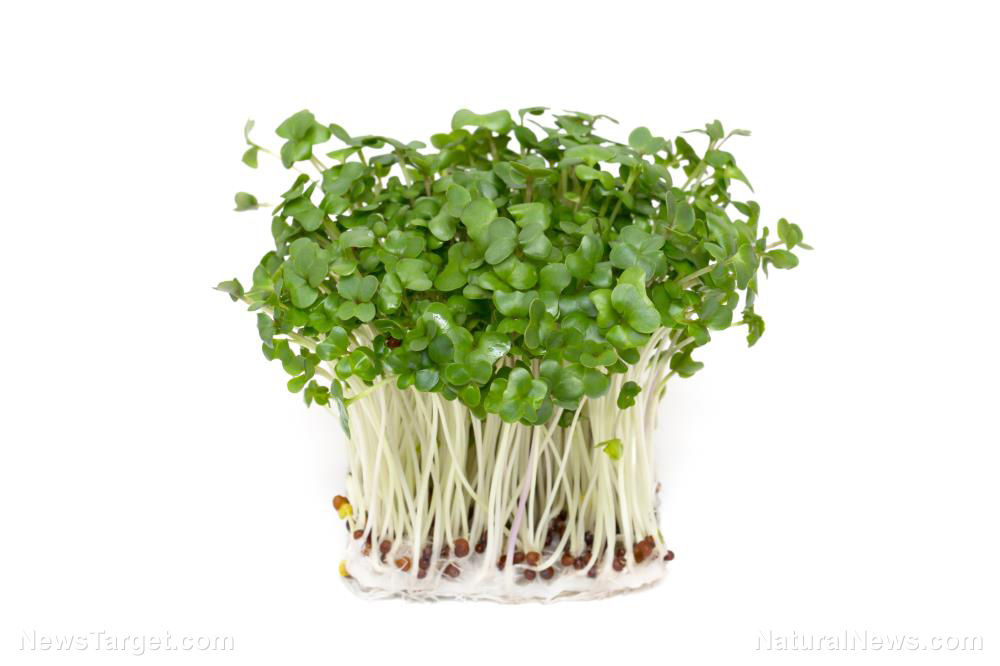
The odds of a woman developing breast cancer are downright frightening, with one out of every eight women expected to develop invasive breast cancer at some time in her life. Although there’s no way to guarantee you won’t be one of them, there are quite a few things you can do to stack the odds in your favor.
As the second leading cause of death in the U.S., cancer has been the subject of a lot of research. One thing that scientists have consistently found to reduce a person’s chances of developing breast cancer is consuming cruciferous vegetables. Epidemiological studies have found that women who eat cruciferous vegetables each day can reduce their breast cancer risk by as much as 50 percent.
Experts believe that cruciferous vegetables have this effect because they are high in an organosulfate compound known as sulforaphane. Studies have shown that sulforaphane can not only lower your risk of getting cancer and reduce the inflammation that can trigger the disease, but it also kills cancer cells outright. This overachieving compound can also prevent the DNA changes that lead to cancer and deactivate enzymes that transform pro-carcinogens into active carcinogens.
A 2007 Johns Hopkins University study found that sulforaphane inhibits the growth of four different types of breast cancer cells. It’s not just women who can benefit; it has also been shown in studies to significantly slow the development of prostate cancer in men. For example, one study showed that consuming just 60 milligrams of sulforaphane per day in the form of broccoli sprouts was enough to slow the doubling rate of prostate cancer by 86 percent.
In addition to reducing breast cancer and prostate cancer risk, studies haves demonstrated that sulforaphane supports gut health, helping people to maintain a healthy digestive system. It can also help enhance your body’s natural detox process, and it has even been shown to reduce muscle pain after exercise. Another study found that it helps prevent the type of oxidative damage seen in the body that leads to immune system decline as people age.
The best way to get sulforaphane
If you’d like to get these benefits for yourself, there are lots of cruciferous vegetables to choose from, including broccoli, cabbage, kale, mustard greens, Broccoli sprouts, bok choy, and watercress. It’s easy to incorporate these vegetables into your diet, and there are enough different options that you won’t have to worry about getting tired of eating the same thing all the time.
However, if you want to get the most bang for your buck, experts say you should turn to broccoli sprouts. Just 140 grams of the raw sprouts are enough to give you the amounts of sulforaphane seen in many of these studies. If you can’t find organic broccoli sprouts in your local farmer’s market or grocery store, you can make them yourself easily with broccoli sprouting seeds and a glass jar.
Although it’s better to eat cruciferous vegetables raw if you’re looking for their cancer-fighting benefits, it is okay to cook them as long as you don’t overdo it. Avoid boiling them as this inactivates the enzyme that transforms the glucoraphanin in the vegetables into sulforaphane. Instead, steam them lightly for no longer than four minutes.
As more information comes to light about simple dietary changes that can reduce our risk of disease, one can only hope that breast cancer will be far less common in the future than it is now. Consuming the foods that lower your cancer risk should be part of an overall healthy diet and lifestyle, but it’s safe to say that eating cruciferous vegetables requires such a small effort for such a great potential reward.
Sources for this article include:


